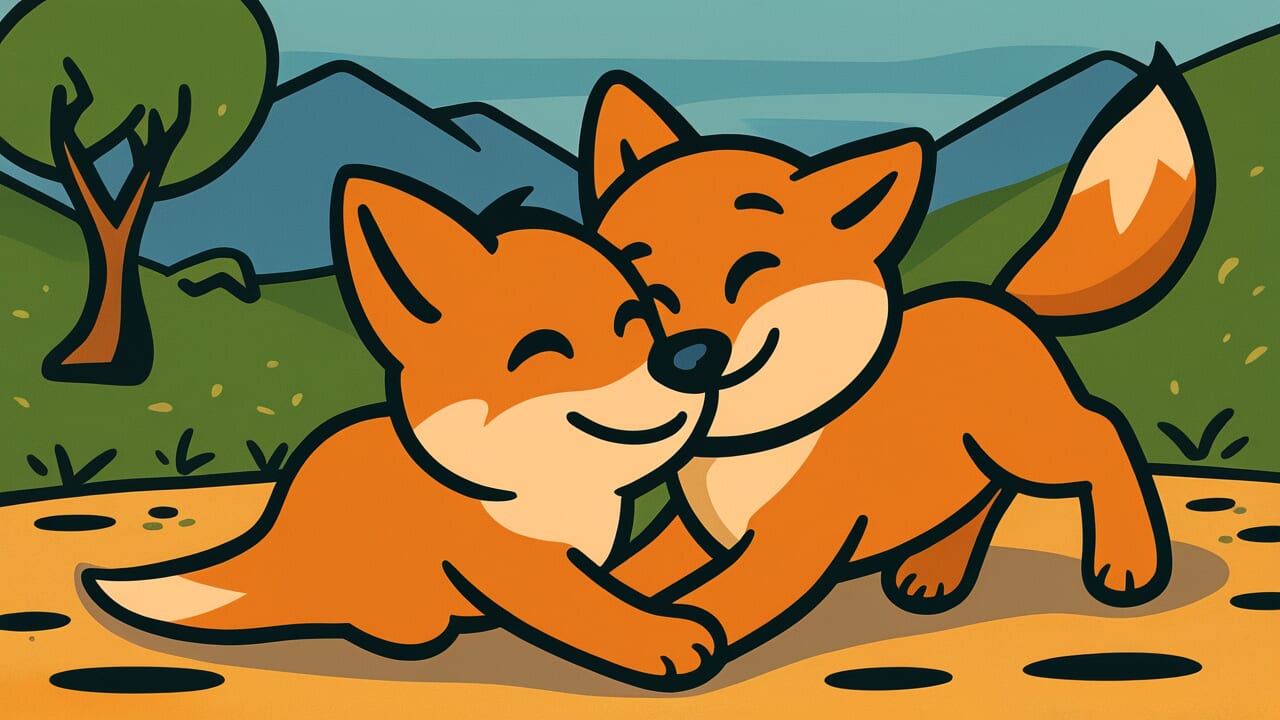How to Read “A fox’s child has an interesting face”
Kitsune no ko wa omoshiro
Meaning of “A fox’s child has an interesting face”
“A fox’s child has an interesting face” means that children resemble their parents in being cunning and clever.
The proverb comes from observing how fox cubs act as cleverly as their parents. It shows that children naturally inherit their parents’ traits and talents from birth.
People use this saying especially when children show the same shrewd behavior or sharp actions as their parents.
It expresses the feeling of “they really are their parent’s child” while recognizing the strong influence of genetics and family environment.
Today, people use it when children display inherited talents from their parents. They might feel impressed or sometimes cautious.
The proverb isn’t always negative. It simply points out similarities between parents and children.
You could say it’s one form of human observation that blood will tell.
Origin and Etymology
No clear written records explain the origin of this proverb. However, we can make interesting observations from how the words are structured.
Foxes have appeared in Japanese folktales and legends since ancient times as clever animals that deceive people.
Their wisdom sometimes surpasses humans. People feared them as beings who skillfully trick others, yet also spoke of them with respect and awe.
Let’s focus on the word “omoshiro” (interesting). Today it means “fun” or “enjoyable.”
But in classical Japanese, it had stronger meanings of “intriguing” or “eye-catching.” It also likely carried nuances of “clever” or “shrewd.”
So when a fox’s child is “omoshiro,” it doesn’t just mean adorable. It refers to displaying inherited cleverness or cunning from the parent.
Just as parent foxes have skills to deceive people, their children are born with the same qualities.
From this observation came the lesson that in human society too, children inherit their parents’ nature.
This proverb shows our ancestors’ sharp insight. They understood human nature by observing animal behavior.
Usage Examples
- That child has the same business talent as their parent. “A fox’s child has an interesting face” is truly well said.
- Watching the son show negotiation skills inherited from his father, I couldn’t help but admire that “a fox’s child has an interesting face.”
Universal Wisdom
The proverb “A fox’s child has an interesting face” perfectly captures the mystery of how genetics and environment shape human development.
All of us live with something inherited from our parents, whether we’re aware of it or not.
It’s not just physical appearance. It’s habits of thinking, ways of handling problems, and styles of interacting with people.
Before you know it, you’re using the same words as your parents and making similar judgments. This surprises you.
This isn’t simple imitation. It might be a deeper connection, tied by the invisible thread of blood.
This proverb has been passed down for so long because it touches on fundamental human questions.
How freely can we shape ourselves? Or is much already decided the moment we’re born? The answer doesn’t come easily.
However, acknowledging parental influence doesn’t mean denying your own potential.
Rather, knowing your roots helps you understand yourself more deeply. You can use the cleverness inherited from your parents in better directions.
After all, humans are beings who learn from the past and create the future.
When AI Hears This
We find fox cubs cute because our brains are designed to automatically respond to “juvenile features.”
Large eyes, short noses, round faces, clumsy movements. These are common features of mammal babies.
We’re programmed to feel “I want to protect this” the moment we see them.
What’s interesting is that this program works across species. Not just human babies, but puppies, kittens, and fox cubs all trigger the same response.
Even more surprising, the human species itself is extremely neotenic. This means we retain childlike features even as adults.
Compare a baby chimpanzee with a human baby. Their faces look similar. But chimpanzees develop protruding faces as they grow.
Humans keep flat faces into adulthood. The same applies to the brain.
Other primates lose learning ability as they mature. Humans maintain the capacity to learn throughout life.
From this perspective, when we find fox cubs cute, we’re actually projecting our own childlike nature.
Humans are attracted to baby animals perhaps because we’re a species with eternally childlike characteristics.
The very sensation of finding something cute is evidence of human neoteny.
Lessons for Today
This proverb teaches modern people the importance of knowing ourselves deeply. Recognizing traits inherited from parents becomes the first step toward self-understanding.
You’ll sometimes find parental influence in your unconscious behavior patterns and thinking habits.
When you notice this, you don’t need to reject it. Rather, freedom emerges to choose how to use those traits or how to improve them.
If you have inherited cleverness or talent from your parents, that’s a great asset.
On the other hand, if you notice undesirable tendencies, you can consciously change them. Genetics isn’t destiny. It’s just a starting point.
For those raising children as parents, this proverb reminds you how much your words and actions influence the next generation.
As the saying goes, children learn by watching their parents’ backs. Daily behavior itself is education.
Understand what you’ve inherited, then build a better self on that foundation.
That’s the hopeful message this proverb gives to those of us living in modern times.



Comments